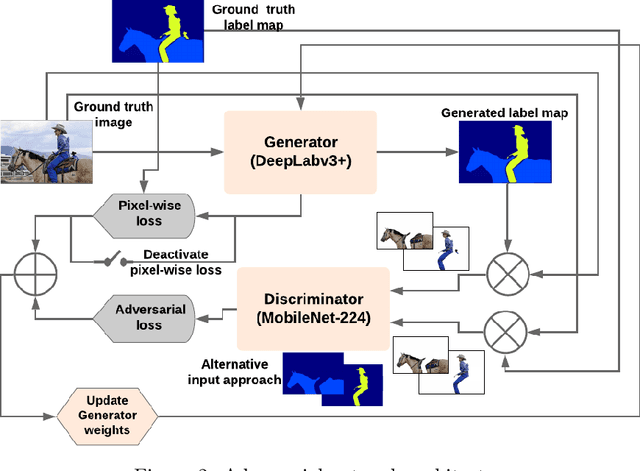Lookahead Adversarial Semantic Segmentation
Paper and Code
Jun 19, 2020



Semantic segmentation is one of the most fundamental problems in computer vision with significant impact on a wide variety of applications. Adversarial learning is shown to be an effective approach for improving semantic segmentation quality by enforcing higher-level pixel correlations and structural information. However, state-of-the-art semantic segmentation models cannot be easily plugged into an adversarial setting because they are not designed to accommodate convergence and stability issues in adversarial networks. We bridge this gap by building a conditional adversarial network with a state-of-the-art segmentation model (DeepLabv3+) at its core. To battle the stability issues, we introduce a novel lookahead adversarial learning approach (LoAd) with an embedded label map aggregation module. We demonstrate that the proposed solution can alleviate divergence issues in an adversarial semantic segmentation setting and results in considerable performance improvements (up to 5% in some classes) on the baseline for two standard datasets.
 Add to Chrome
Add to Chrome Add to Firefox
Add to Firefox Add to Edge
Add to Edge